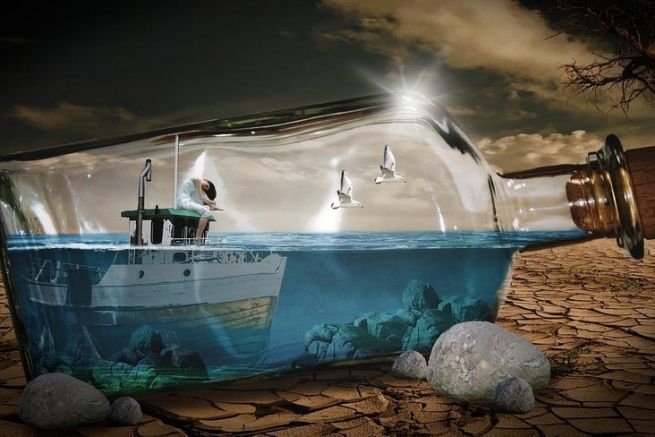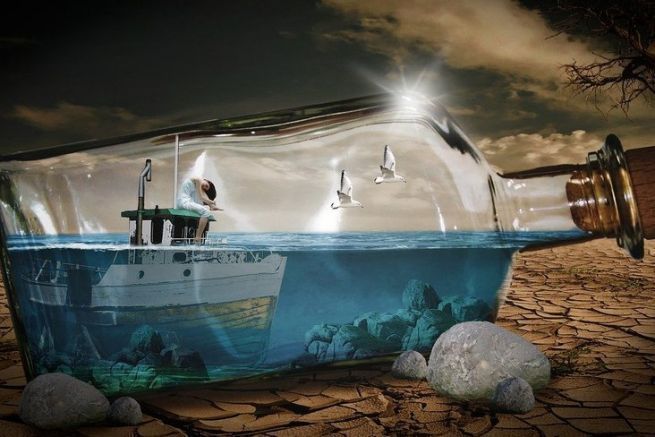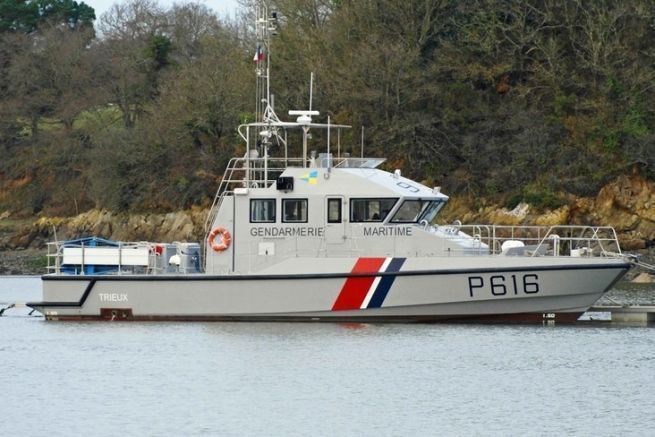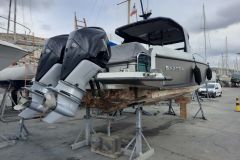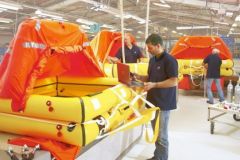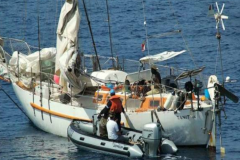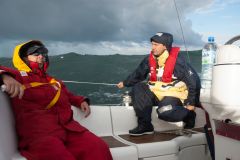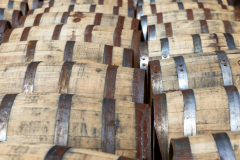The sea, the last space of freedom, without laws or rules, where everyone can indulge in all kinds of excesses without control?
We are all on the water to have a good time and enjoy ourselves. The boating community enjoys - often - good things, from shellfish to a glass of good wine. And we're not wrong to indulge ourselves, after all, life is also about pleasure. But should we go beyond what is reasonable?
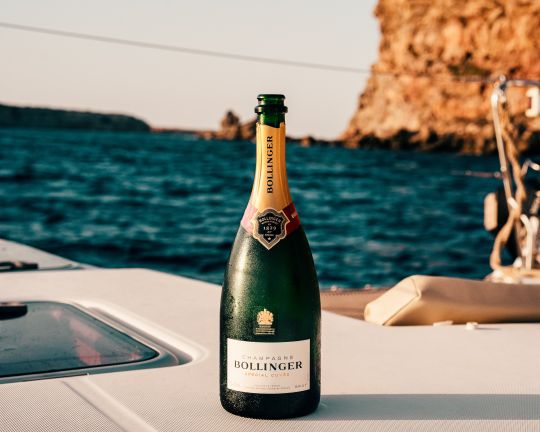
What does the law say?
The legal principle is clearly stated for professional mariners The limit is set, as for motorists, at 0.5 grams of alcohol per liter of blood, beyond which the sailor will be considered drunk. As on land, this corresponds, at most, to the absorption of 2 "bar doses" before taking the helm. The first obvious difficulty is that the bar doses and the on-board doses are different and the measurements are much less precise. This "tolerance" is not an authorization to drink. An alcoholic state (having consumed alcohol, no matter the quantity) will always be judged as an aggravating circumstance in an accident.
For us amateur boaters euros Nothing. No clear limits, other than " drunkenness can be reprimanded ". In the same way as for professionals, the liability of the skipper will be all the greater in the event of an accident if he or she has consumed alcohol, but the authorities cannot rely on any legal limit in this respect, as they do not exist. However, as for a professional, the judge will consider as an aggravating circumstance the alcoholic impregnation of the captain in the context of an accident, especially if people are injured.
What do boaters say?
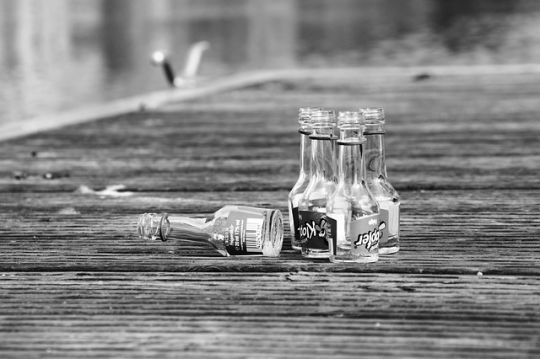
The vast majority of boaters say they are reasonable, even if, on condition of anonymity, some of them tell us " Indeed, at sea, in the evening at anchor, we may have a little more of an aperitif than on land ". Nevertheless, serious accidents do occur, such as the drowning of two boaters returning from Chausey, a few years ago, who were ejected from their inflatable, which alcohol prevented them from controlling. But these cases are fortunately very rare. If alcohol is a reality on board, fatal outcomes are, fortunately, rare for boaters. Most of the time, the consequence will be a little headache the next morning, obviously only due to the swell and to it alone...
What do the insurers say?
The terms of our insurance policies are very clear The guarantees will be non-existent in case of accidents while the insured was in a state of drunkenness or with a blood alcohol level higher than 0.5 grams per liter of blood ". In other words, having consumed a single glass of alcohol will have triggered a state of drunkenness, measurable if not obvious, and will therefore exclude the insured from his or her insurance rights.
What do the rescuers say?
The SNSM explains that beyond the principle of absolute precaution that should direct any skipper, alcohol will aggravate certain feelings " such as seasickness, malaise, loss of bearings, hypothermia. Alcohol does not mix well with boating. The SNSM is regularly called for interventions where cases of drunkenness can be mentioned: drunken boaters on board, bathers reported as being drunk or even water sports enthusiasts who lose control of their boats ".
In a word, " The captain of the boat must be sober ."
If they can be smiling, some of the recent interventions of the SNSM are related to drunkenness:
- On August 14, 2020, in Granville, an angler dove off the pier to retrieve a cubitainer of rosé that had just fallen...
- On August 25, in Le Lavandou, a bather reported to be drunk was lost at sea. Rescuers were engaged in a search. The swimmer finally came back to shore by himself, but the deployment of the rescue team could have been avoided if this swimmer was not in a state of inebriation.
- On September 2, in Charente-Maritime, the SNSM Vedette of Ile d'Aix and the Dragon 17 helicopter were simultaneously dispatched to assist two intoxicated people in difficulty on their sailboat near the island of Aix after having left the port of Minimes in La Rochelle, creating a public disturbance. At the time of arrival of the emergency services, the skippers were out of fuel and the sails were torn.
What to do?
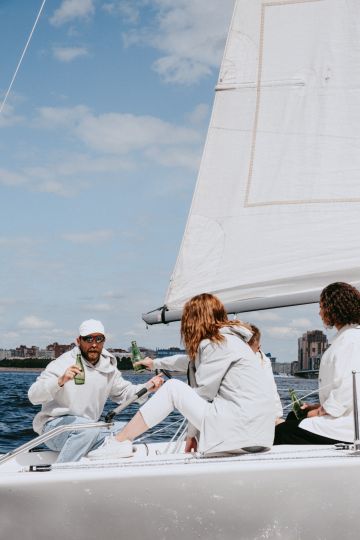
If the pleasure and party dimension must not disappear from the field of yachting, if drinking an aperitif between crew members and a little good wine at the table does not present any risk, it is in the loss of awareness of responsibilities that the real risks can be hidden. If there was only one idea to remember, it would be that of the responsibility of each skipper, if you drink, you don't steer.
This advice is not intended as an invitation to drink or, even more so, to take any drug whose possession, sale or use is punishable by law in French territorial waters and on board any vessel flying the French flag.
The sea is above all a pleasant and fun activity: have fun while knowing your limits.
